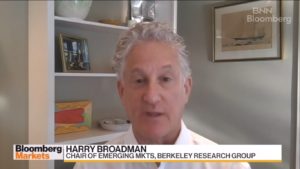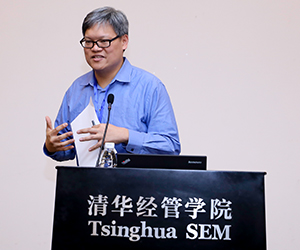
Winston Ma, an investor, attorney, author, and adjunct professor in the global digital economy, discusses at a Miami conference who can follow as leaders in AI for Arab News. He believes also countries like Saudi Arabia can follow those two leaders, although it does mean a lot of targeted investments.
Winston Ma is a speaker at the China Speakers Bureau. Do you need him at your meeting or conference? Do get in touch or fill in our speakers’ request form.
Are you looking for more innovation experts at the China Speakers Bureau? Do check out this list.





















